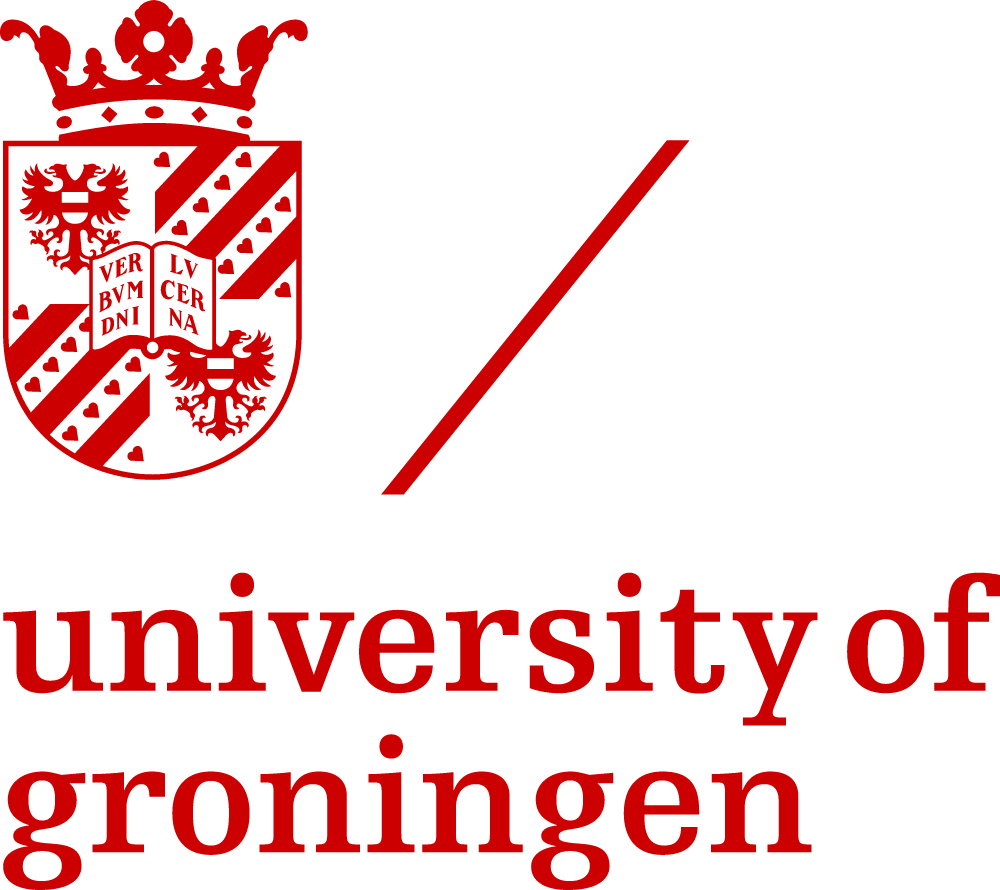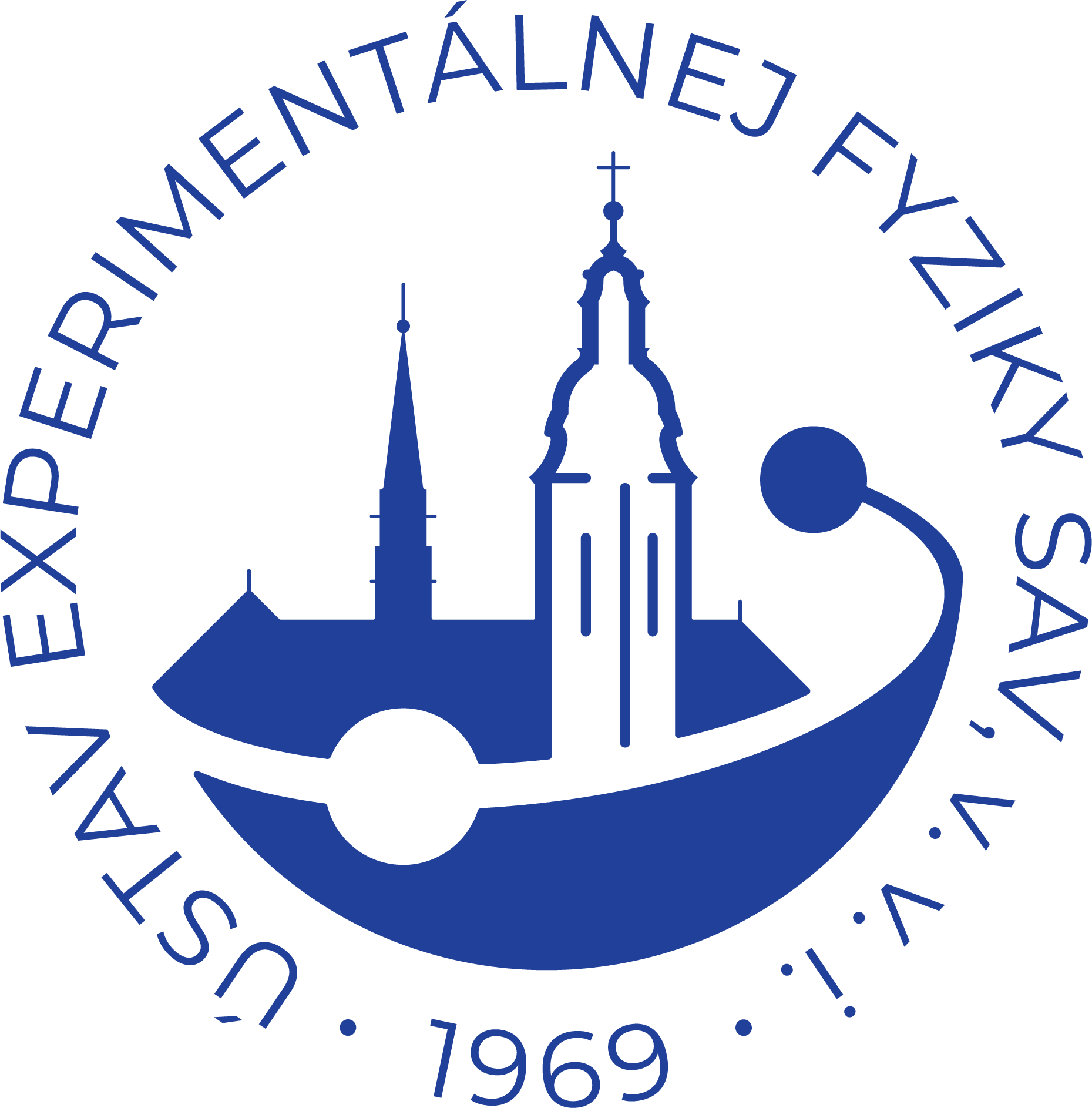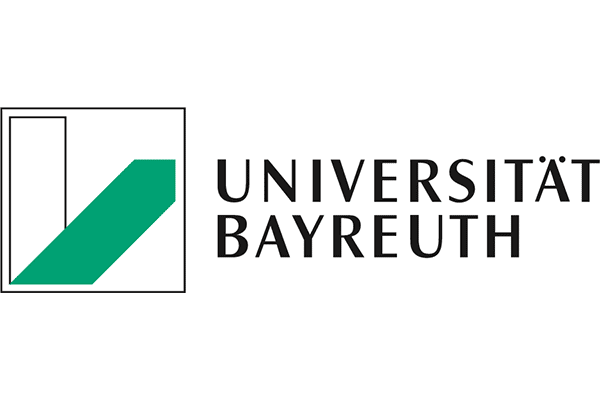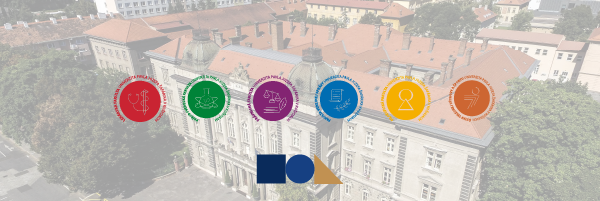PROJECT COORDINATOR
 | Pavol Jozef Šafárik University in Košice, Slovakia | |
Main expertise: Structure, stability, thermodynamics of proteins
Role in the project: CIB TIP-UPJS is the coordinator and the main beneficiary of the APBC project. Staff, scientific as well administrative, and early stage researchers at CIB TIP-UPJS will participate on all activities of the project, organization of workshops, symposia, trainings, joint summer and winter schools. CIB TIP-UPJS will benefit from the incoming expert visits from universities and private sector as well as outgoing short-term visits at the partners institutions and private companies. Dissemination and communication activities will be performed by the designated members of CIB. Finally, CIB TIP-UPJS will manage and coordinate work-packages (WP1-WP5 involved in the project and communicate with EC.
PAVOL JOZEF ŠAFÁRIK UNIVERSITY IN KOŠICE (UPJS), CIB TIP-UPJS
UPJŠ established in 1959, is the second-largest classical Slovak university with five faculties (Medicine, Science, Law, Public Administration, Arts) and approximately 7500 students and 650 teachers/researchers. The recent reports of several Academic Ranking and Rating Agencies confirm that the quality of research outputs from the UPJS is increasing and that the University belongs between the best three Research universities in Slovakia. Research infrastructure of the UPJS has been in the previous years (2010-2019) upgraded by the implementation of 24 scientific and research projects within the national Operational Program Research and Development (OPRD), which is an implementation strategy for European Cohesion Policy defined in the official National Strategic Reference Framework 2007-2013 and 2014-2020 negotiated with EC. Individual laboratories from UPJS have participated in FP5, FP6, FP7, and H2020 projects. The most important from the point of view of the recent CasProt project was the FP7 project – „Fostering Excellence in Multiscale Cell Imaging“ – 316310 CELIM, [REGPOT-2012-2013-1 HEALTH], period: 2013-2016, total budget 2.7 million of EUR.. Another significant project is the H2020 project CasProt, from 2020 to 2023, with a total budget of 0.88 million EUR.
 | Technology and Innovation Park UPJŠ, Slovakia | |
The Technology and Innovation Park of Pavol Jozef Šafárik University in Košice (TIP-UPJŠ) is a strategic center of scientific progress and technological transformation, which systematically connects academic excellence with industrial reality and impulses of the business world.
With a strong focus on applied biomedicine, advanced biotechnology and innovative paleobiology, we create an environment where globally competitive solutions with a measurable impact on society, healthcare and the economy emerge.
The successful execution of these projects mentioned above facilitated the establishment of the Center for Interdisciplinary Biosciences Technology and Innovation Park at the UPJS (CIB TIP-UPJS) and the creation of a network of EU partners in interdisciplinary bioresearch. Our collaborations are founded on a complementary exchange of expertise, yielding joint research projects and papers published in prestigious scientific journals such as Nature Communications, PNAS, Scientific Reports, Analytical Chemistry, and the Biophysical Journal. CIB TIP-UPJS has consistently delivered high-quality, interdisciplinary bioscience research utilizing advanced experimental and theoretical methods. The laboratories of CIB TIP-UPJS have been fitted with cutting-edge equipment for molecular biophysics, protein engineering, organic biochemistry, molecular and cell biology, laser spectroscopy, bioenergetics, microscopy, and molecular simulations. To further develop the Center’s research profile, eight distinguished Slovak scientists, who have previously worked at internationally acclaimed scientific institutions, have been reintegrated into CIB UPJS. This strategic decision is pivotal for UPJS’s future scientific advancements and for fostering biomedical and biotechnological start-ups within Slovakia.
 | Center for Interdisciplinary Biosciences, Slovakia | |
CIB TIP-UPJS in the 7 years of its existence has become known as an innovative interdisciplinary science and technology center dealing with oriented research at the intersection of biology, chemistry, physics, mathematics, and informatics and the transfer of scientific knowledge into production practice. The dominant mission of the center is the implementation of high-quality basic research in the areas of protein engineering, directed protein evolution, nanomedicine, bioenergetics, and the environment. This is linked to the development of new technologies and innovations for the diagnosis and treatment of serious diseases, environmental analysis as well as their marketing and the application of the latest scientific knowledge in economic practice and education.
Over the years, CIB TIP-UPJS established very close connections with the Departments of Biochemistry and Biophysics in the joint effort these teams successfully obtained projects and funding from H2020 and EU structural funds, including projects like Openmed and BioPickmol. The cumulative funding (grants + budget) of over 16 million EUR has enabled the sustainable growth of the center and the implementation of performance-based salary schemes for CIB TIP-UPJS members, ensuring a competitive and motivating work environment.
COOPERATING PARTNERS FROM THE ACADEMIC SECTOR
 | University of Groningen, Netherlands | |
Main expertise: Protein engineering in silico and experimental approaches
Role in the project: UG’s contribution to the project will consist in helping to establish a bioinformatics group at CIB TIP-UPJS and in the development of a rational design strategy in combination with the method of directed evolution with a focus on the design of robust and effective photosensitizers. The photosensitizers based on flavoproteins have the potential to be used in medical-oriented cell biology research, in photodynamic therapy, and in dermatological applications, are the research focus of UG and UPJS. The combined effort by in silico and rational design and protein evolution methods has a high potential to evolve suitable enzyme candidates for biotechnological applications at TRL3 and higher. The expertise of UG will be utilized in a stregthening study program oriented to protein engineering in both in silico and experimental approaches and an establishment of R&D laboratory used as a joint laboratory of the APBC participating on all tasks of WP2 (Advanced biotechnology R&I) and reaching goals of WP3 (Commercialization & industry engagement strategy).
UNIVERSITY OF GRONINGEN (UG)
The University of Groningen is an internationally oriented university with a rich academic tradition. Since the establishment in 1614, the university has brought forward striving academics, like the first female student, the first Dutch astronaut and various Nobel prize winners. Geographically, the University is rooted in the Northern part of the Netherlands, a region very close to its heart. They connect education and research with sustainable and economic processes within society. This comes together in our three spearheads: Energy, Healthy Ageing and Sustainable Society. UG is known for its strong natural sciences programs, its research-oriented approach, and its international outlook. It collaborates with various research institutes and industries, providing students with ample opportunities for practical experience and internships. The university’s faculties and research centers often conduct cutting-edge research, contributing to advancements in natural sciences.
Main expertise: Basic and applied research on neurodegenerative diseases, specializing in neuroimmunology, monoclonal antibody development, and translational medicine from molecular mechanisms to diagnostics and therapeutics.
Role in the project: The INSAS in the APBC will be represented by the research groups of Immunology and Neuroimmunology, Molecular and Cellular Neurobiology and Structural Biology of Neurodegeneration, contributing to the immunological, structural and biophysical (interaction kinetics) characterization of biotechnology products developed by APBC network and preparation of procedures for the pilot production of recombinant APBC product in mammalian CHO-cell lines. Moreover, INSAS will contribute to capacity concentration, resource focusing and fostering the Eastern Slovakia region competitiveness by direct knowledge sharing in the field of structural biology, specifically protein crystallography and interaction kinetics methods. INSAS will be invaluable for achieving goals of WP1 (Education & skill development), WP2 (Advanced biotechnology R&I) with the penetration to WP3 (Commercialization & industry engagement strategy) with the aim reaching the TRL3/4 regarding the evolving of antibodies against specific epitope(s) and potentially to TRL5/6 for production of other’s partners biotechnology products in CHO cell line expression system.
INSTITUTE OF NEUROIMUNOLOGY, SLOVAK ACADEMY OF SCIENCES IN BRATISLAVA (INSAS)
The Institute of Neuroimmunology of the Slovak Academy of Sciences (NIU SAS) is a national leader in basic and applied research in neuroscience and immunology, focusing on understanding the physiology and pathology of the brain and spinal cord. Its research spans molecular mechanisms to cognition and behavior, with emphasis on neurodegenerative diseases, CNS infections, and traumatic injuries. NIU SAS employs cutting-edge omics and cellular technologies, hosts doctoral programs in neuroscience, immunology, and molecular biology, and collaborates with universities through the Centre of Biomedical Microbiology and Immunology. It represents Slovakia in major international research initiatives like JPND and ICGEB, and actively translates scientific discoveries into diagnostics and therapies, including through its Alzheimer’s Diagnostic Centre, Centre MEMORY. The Institute is also committed to public education and professional engagement through partnerships with national neuroscience and Alzheimer’s societies.
Main expertise: Leading research institution in modern physics and biophysics, specializing in the study of protein amyloid structures, bio-inspired nanomaterials, and the identification of small molecules for modulating protein aggregation related to neurodegenerative diseases.
Role in the project: The IEP contributon to the Consortium excellence will rely on the teaching of specialized courses focused on protein topic and education of Master’s and Ph.D.‘s students in the consent of WP1 (Education & skill development). The members of IEP team will actively participate in organizing summer schools on the topic of protein stability and the corresponding methods of study of conformational and colloidal stabilities of proteins. The research expertise of the IEP will be focused on identification of small organic molecules as efficient agents in modulation of colloidal properties of proteins, with the potential application as agent preventing or reversing aggregation processes addressing potential treatment of debilitating diseases connected with misfolding/aggregation of proteins. This part of the IEP expertise goes along with the particular task in WP2 (Advanced biotechnology R&I) aiming at to reach TRL2 in identification of critical attributes of quality for specific small organic molecules to be efficient modulators of depolymerization of particular protein aggregates.
INSTITUTE OF EXPERIMENTAL PHYSICS, SLOVAK ACADEMY OF SCIENCES IN KOŠICE (INSAS)
Institute of Experimental Physics, Slovak Academy of Sciences in Košice (IEP) is a research and educational institution with a long tradition of basic research in several areas of modern physics. The areas of interest at the IEP include basic research in condensed matter physics, sub-nuclear physics, space physics, and biophysics as well as in selected areas of chemical, biological sciences, and nanotechnologies. The research is focused on basic research in physical sciences and is also dedicated to applied research. In 2022, IEP was honored by an independent evaluation committee as one of the best research institutes of the Slovak Academy of Sciences. A large number of publications in high-impact factor journals, involvement in international collaboration projects, and connections with industry were considered as key evaluation criteria.
The IEP members successfully obtained financial support from different funding agencies such as Structural Funds of EU – Operational Programme Research and Development, EU, such as Marie Skłodowska-Curie Actions (MSCA), Research and Innovation Staff Exchange (RISE), SPS NATO, bilateral projects with Germany, Taiwan, and Ukraine and national grant agencies. The team was awarded the Award for Science and Technology in the category: „Scientific and technological team of the Year“ in 2019 by the Ministry of Education, Science, Research and Sport of the Slovak Republic for the scientific impact and identification of therapeutic compounds for diseases connected to protein amyloid aggregation. Team members have been awarded several individual national and international awards (Danubius Young Scientist Award).
 | St. Anne’s University Hospital Brno – the International Centre for Clinical Research (FNUSA), Czech Republic | |
Main expertise: Advanced biotechnology, protein engineering, and bioinformatics, focusing on the design of novel enzymes, development of biocatalysts, and computational tools for genetic and protein analysis with broad applications in industry, medicine, and research.
Role in the project: FNUSA will bring expertise in dehalogenases and the development of thrombolytics. They will support the R&D team between UPJS and Enantis, fostering collaboration and knowledge exchange. This effort addresses tasks in both WP2 (Advanced biotechnology R&I) and WP3 (Commercialization & industry engagement strategy).Joint publications in renowned journals will showcase high-quality research outcomes. The collaboration with FNUSA will help UPJS in commercialization efforts, leveraging its expertise in this area. Prof. Damborsky’s and Prof. Prokop’s presence in the Mentor Circle will provide valuable guidance and support in project management, a part of WP4 (Project management). An essential component of WP1 (Education & skill development), will be sharing experience with supervision and mentoring of students. Planned is also the initiation of administrative processes regarding the establishment of a double diploma program between UPJS and Masaryk University will lead to an intensification of collaboration in Education/Training, benefiting both lecturers and students. Tight collaboration with FNUSA can also help mitigate the brain drain from Slovakia, as Brno is a preferred destination for Slovak students, and their knowledge-sharing can make UPJS more attractive to local talent.
St. ANNE’S UNIVERSITY HOSPITAL BRNO – THE INTERNATIONAL CENTRE FOR CLINICAL RESEARCH (FNUSA).
St. Anne’s University Hospital Brno is one of the most important healthcare institutions in the Czech Republic, with a tradition spanning more than two centuries. It provides top-quality medical, preventive, and nursing care across a wide range of medical fields. The hospital is also a center of science, research, and innovation. It actively participates in the development of new diagnostic and treatment methods and works closely with domestic and international research institutions. Education is an important part of St. Anne’s activities. In cooperation with the Faculty of Medicine of Masaryk University, medical schools, and other academic institutions, it contributes to the training of future doctors, nurses, and other healthcare professionals. The hospital comprises 39 specialized departments and more than 20 centers of highly specialized care. It holds the status of a Comprehensive Cardiovascular, Cerebrovascular, and Oncology Center.
Main expertise: Genetic engineering, production, and application of protein-based biopolymers—particularly recombinant spider silk
Role in the project: UBT’s invaluable expertise will play a pivotal role in bolstering UPJS’s appeal and addressing the challenge of brain drain, ultimately contributing to the establishment of a thriving academic institution. Notably, Prof. Scheibel’s participation in the Mentor Circle and the management of the project, WP4 (Project coordiantion, management, and knowledge dissemination), promises to offer exceptional insights and guidance to the academic community. This mentorship will prove instrumental in nurturing young talents and furthering groundbreaking research initiatives. The main contribution of UBT’s team, we envision in WP2 (Advanced biotechnology R&I) activities regarding spider silk and spider-silk based hydrogels engineering to the TRL2 and TRL3, respectively. The spider silk and hydrogels engineering will be aimed on the biomaterial and drug delivery/release development. Critical contribution of UBT is also expected in an establishment of R&D laboratory, as a part of WP3, dealing with design, small-scale expression and analysis of novel spider silk constructs.
THE UNIVERSITY OF BAYREUTH
UBT is currently rated worldwide among the top young universities which were founded less than 50 years ago according to the Times Higher Education global ranking “150 under 50”. As a medium-sized campus university, place emphasis on ensuring the highest quality of the infrastructure in disciplinary and interdisciplinary projects that place Bayreuth among the best universities internationally. It is worth mentioning that the collaboration between UPJS and UBT spans over three decades. This fruitful partnership was initiated by Prof. Matthias Sprinzl, the esteemed head of the Department of Biochemistry, in early 90´s and has resulted in continuous cooperation of our research groups with bayreuth scientists.
 | The University of Oxford, United Kingdom (UO), United Kingdom | |
Main expertise: Pioneering research and innovation across multiple scientific disciplines, with particular expertise in advanced molecular imaging and analysis techniques—such as mass photometry, interferometric scattering microscopy (iSCAT), and femtosecond stimulated Raman spectroscopy—enabling groundbreaking discoveries in chemistry, biophysics, and biotechnology.
Role in the project: UO’s contribution to setting up a fully new regional Center for mass photometry in Eastern Europe will significantly advance the research infrastructure in UPJS in full consent with goals of WP3 (Commercialization & industry engagement strategy). Their support in shaping UPJS as a successful university and establishing startup and spinoff companies will enhance its academic and entrepreneurial landscape. UO’s allocation of personnel for training and focus on innovative scientific questions will enrich UPJS’s research capabilities. Prof. Kukura’s role in the Mentor Circle board will provide valuable guidance and expertise in the reaching goals included in the WP1 (Education & skill development), WP2 (Advanced biotechnology R&I) and WP4 (Project coordiantion, management, and knowledge dissemination).
THE UNIVERSITY OF OXFORD (UP)
The University of Oxford, United Kingdom (UO) holds a prestigious position as a research institution located in Oxford, England. Throughout its illustrious history, UO has been a breeding ground for academic brilliance, serving as the workplace for 73 Nobel Prize winners, 4 Fields Medalists, and 6 Turing Award winners. The University of Oxford has not only achieved unparalleled success in producing exceptional scholars, but it has also established itself as a powerhouse of research and innovation. In the realm of research funding, the University of Oxford has proven its mettle on the international stage. UO had received an astounding more than 410 ERC (European Research Council) grants. These remarkable feat positions the institution as the highest recipient of ERC grants in the United Kingdom and places it among the leading recipients across Europe. This substantial funding demonstrates the recognition and support that UO receives for its groundbreaking research endeavors.
COOPERATING PARTNERS FROM THE PRIVATE SECTOR
 | JUHAPHARM, Ltd. (Juhap), Slovakia | |
Main expertise: Applied pharmaceutical and biomedical research, focusing on the development of innovative drug delivery systems, therapeutic proteins, medical devices, and active substances, with strong industry-academic partnerships aimed at translating research into practical healthcare solutions.
Role in the project: Juhap’s drug and active substance discovery process using existing molecules and new chemical entities will contribute to the consortium’s efforts to find potential aging inhibitors. Their cooperation with UPJS and the screening of FDA-approved libraries will bring practical applications for therapeutic use. Juhap’s expertise and expanding research applications will strengthen the consortium’s impact in the biomedical field and will be exceptional in achieving the objectives of WP1 (Education and Skills Development), WP3 (Commercialization Strategy and Industry Engagement) and WP4 (Management).
JUHAPHARM (Juhap)
JUHAPHARM, Ltd. (Juhap) registered seat is localized in Košice, Slovakia. The company employs professional teams of experts who perform their scientific and research activities in their cooperating work sites in Košice, Nitra and in Bratislava. Juhap is classified as a small commercial company engaged in applied/industrial research. The company is involved in production activities in the pharmaceutical, medical and cosmetic fields. With almost 24 years of history, they have established themselves as a reputable organization focusing on high quality standards. They are members of the recognized Cassovia Medi Valley (CMV) cluster the goal of which is to contribute to the development of science and research in the Eastern Slovakia. With the significant participation of Juhap, CMV enables the creation of a new level of sustainable regional cooperation between highly successful organizations that share a common vision of transforming the city of Košice and the Košice self-governing region into a scientific, research and innovation area that has the ambition to compete with its national, European and global partners.
 | Enantis Ltd. (Enantis), Czech Republic | |
Main expertise: Protein engineering and stabilization, particularly of fibroblast growth factors (FGFs), developing patented hyperstable proteins for therapeutic, cosmetic, stem cell, and cultured meat applications.
Role in the project: Enantis’s internal R&D activities are thus predominantly focused on the family of fibroblast growth factors (FGFs). The goal is to improve the poor stability of FGFs for their use as new therapeutics and cosmetics agents but also as stem cell culture reagents and cultured meat media additives. The company currently has three patented hyper stable molecules – FGF2-STAB®, FGF10-STAB®, and FGF18-STAB® with global distribution and license agreements worldwide for life science and cultured meat markets. In addition, Enantis’s products are currently in the preclinical testing phase with FGF2-STAB® as a novel therapeutic solution for hard-to-heal wounds. With both their products and services, they want to create a healthier and more sustainable future. Enantis is proudly ISO 9001:2016 certified for the quality management system in the field of research, development, and production of proteins. The emergence of Enantis as a spin-off company from Masaryk University and therefore detailed knowledge of the processes associated with the transition from the laboratory to practical use will be invaluable for achieving the specific goals set in WP2 (Advanced biotechnology R&I) and WP3 (Commercialization & industry engagement strategy).
ENANTIS Ltd. (Enantis)
Enantis, Ltd., founded in 2006 in Brno, Czech Republic, is an innovative biotechnology spin-off from Masaryk University, specializing in protein science and applied research. Strategically located next to the INBIT biotechnology center, Enantis focuses on protein optimization and stabilization, with a core emphasis on the fibroblast growth factor (FGF) family. The company has developed and patented three hyperstable FGFs—FGF2-STAB®, FGF10-STAB®, and FGF18-STAB®—which are used in therapeutic, cosmetic, stem cell, and cultured meat applications and distributed globally under license agreements. With products in preclinical testing and certified under ISO 9001:2016, Enantis combines academic excellence with commercial innovation, supporting the transition from laboratory research to real-world applications and contributing significantly to advanced biotechnology and commercialization strategies.







